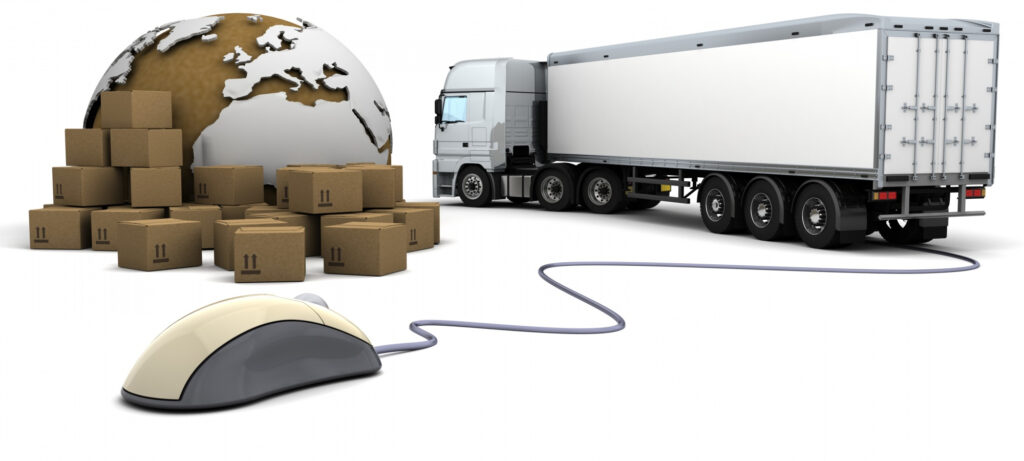Freight brokers play a pivotal role in the logistics industry, serving as the critical link between shippers and carriers. A freight broker’s chief responsibility is to streamline the freight shipping process, ensuring timely deliveries, and achieving final procurement status. This blog will explore the top strategies that freight brokers can utilize to optimize truckload capacity in the ever-fluctuating logistics landscape.
What are the Tips for Finding Truckload Capacity
Understanding Truckload Capacity
Truckload capacity refers to the availability of drivers and equipment required to transport shipments. Ensuring adequate truckload capacity is crucial for freight brokers to guarantee the smooth execution of freight shipments.
Role of Freight Brokers: Freight brokers are the linchpins in the logistics industry, acting as the communication bridge between shippers and carriers. They are responsible for finding the right truckload capacity, managing logistics, and ensuring timely deliveries.
Importance of Truckload Capacity: Ensuring sufficient truckload capacity is vital for the timely delivery of goods. Freight brokers need to align all the data accurately when matching shippers with carriers to ensure a smooth shipment process.

Leverage USDOT Tools for Safety Information
Freight brokers can utilize various tools provided by the United States Department of Transportation (USDOT) to access safety information. One such tool is the Federal Motor Carrier Safety Administration (FMCSA) which monitors records associated with each specific carrier.
FMCSA and Safety Tips: Understanding the analytics for carriers helps brokers select the appropriate transportation mode and carrier for shipments. You can also explore safety tips for drivers to ensure the safety of your shipments.
Embrace Digital Freight Matching
Freight brokers can leverage cutting-edge technology to access on-demand trucking information, commonly known as digital freight matching.
Benefits of Digital Freight Matching: Digital freight matching enables freight brokers to connect shippers and carriers quickly, ensuring quick turnaround times for shipments. Several companies offer this service to find the best truckload capacities, including applications like Capacity by Edge.
Building a Current Book of Business
Freight brokers need to grow their client base, known as a book of business, among shippers and carriers.
Strategies for Business Growth: Freight brokers can grow their business by specializing in the trucking industry, offering full-service and lane-focused strategies. They can leverage leading technologies to streamline shipments and achieve final-mile procurement for the carrier.
Utilising Advanced Technology for Market Dynamics
Freight brokers equipped with advanced technology like freight data resources and analytics platforms are better positioned to identify market fluctuations and high-priority needs before risks materialize.
Significance of Informed Brokers: Informed brokers can access more capacity by strategically managing their commitments and assets, thus ensuring efficient freight operations.
Exploiting Public & Private Load Boards
Freight brokers can maximize carrier sourcing and capacity by proactively using load boards. These boards help freight brokers find new capacity quickly and efficiently, forging longer-lasting carrier relationships.
Load boards are affordable tools that provide access to a wide network of shippers and carriers. This allows for efficient matchmaking, potentially reducing the time and cost associated with finding suitable freight or transport. It provides flexibility by allowing carriers to choose which loads they want to bid on based on factors like shipment date, origin, destination, and truck type. This allows carriers to optimize their routes and loads.
By bringing together shippers, brokers, and carriers on a single platform, load boards can increase efficiency in the freight matching process. They can reduce the time it takes to find a suitable match, and allow for quick negotiations and confirmations
Partnering with the Right Broker
Freight brokers who leverage new technology can assist their shipper customers in finding capacity in the right equipment type, right lane, and at the right price. They continuously work to strengthen carrier relationships in pursuit of optimizing freight flows.

Leverage the Scalability of SaaS-Based Platforms
Leveraging the scalability of SaaS-based truckload management platforms can greatly benefit the trucking industry. One significant advantage is the potential for rapid growth or downsizing without the need for substantial investment in infrastructure or hardware.
- The scalability of SaaS allows for easy adjustment to changing business demands, ensuring companies can adapt to fluctuations in the market or business growth. The ability to scale up or down as necessary provides flexibility and efficiency, which are critical for maintaining competitiveness in the dynamic trucking industry.
- SaaS platforms are accessible from anywhere, offering the ability to manage operations remotely. This feature is particularly beneficial for the trucking industry, where real-time information and quick decision-making are crucial for success.
- SaaS platforms can help reduce costs. The pay-as-you-go model of most SaaS platforms means businesses only pay for what they use, making it a cost-effective solution. This can lead to significant savings, which can be reinvested into other areas of the business.
Utilise Automated Waterfall Tendering to Cover All Loads
Automated waterfall tendering provides several advantages for the trucking industry.
- Firstly, it streamlines the process of securing truckload spot rates by automatically assigning loads to carriers that may have capacity. This means shippers don’t have to manually reach out to individual carriers, saving significant time and effort.
- Secondly, it allows for a focus on cost-effectiveness. With automated waterfall tendering, loads are usually assigned to the lowest bidding carrier, ensuring that shippers can secure transportation at the most competitive rates.
- Tendering automation provides real-time updates and information. This allows shippers to keep track of their loads and make necessary adjustments in a timely manner, enhancing operational efficiency.
By tracking tender indicators such as rejection rates, lead time, and volume, shippers can forecast spot rates, capacity, and demand, thereby making more informed decisions.
Let Data Guide Tendering Processes
Data-backed tendering allows for more efficient predictive planning, enabling freight brokers to adapt to market changes and remain competitive.
Importance of Data-Driven Processes: Investing in new ways to tap into the power of modern technologies and automated processes allows truckload freight brokers to adapt to market changes and remain competitive.
Freight brokers need to remain agile and proactive in the ever-evolving logistics landscape. By leveraging advanced technology, utilizing data, and building strong relationships with carriers, they can ensure efficient and timely freight operations.
Conclusion
Freight brokers play a pivotal role in the trucking industry, especially when it comes to finding truckload capacity. By leveraging the power of technology, focusing on building solid relationships with carriers, and staying informed about market trends, brokers can successfully navigate the challenges of securing capacity. The adoption of automated waterfall tendering and SaaS platforms can further optimize the process, leading to significant cost savings, increased flexibility, and heightened operational efficiency.
As the industry continues to evolve, it’s more important than ever to have the right digital tools at your disposal. Appscrip’s Freight Management App development solutions can be a game-changer for freight brokers. With features such as real-time tracking, instant quotes, and a streamlined booking process, you can ensure your operations are as efficient and cost-effective as possible.











